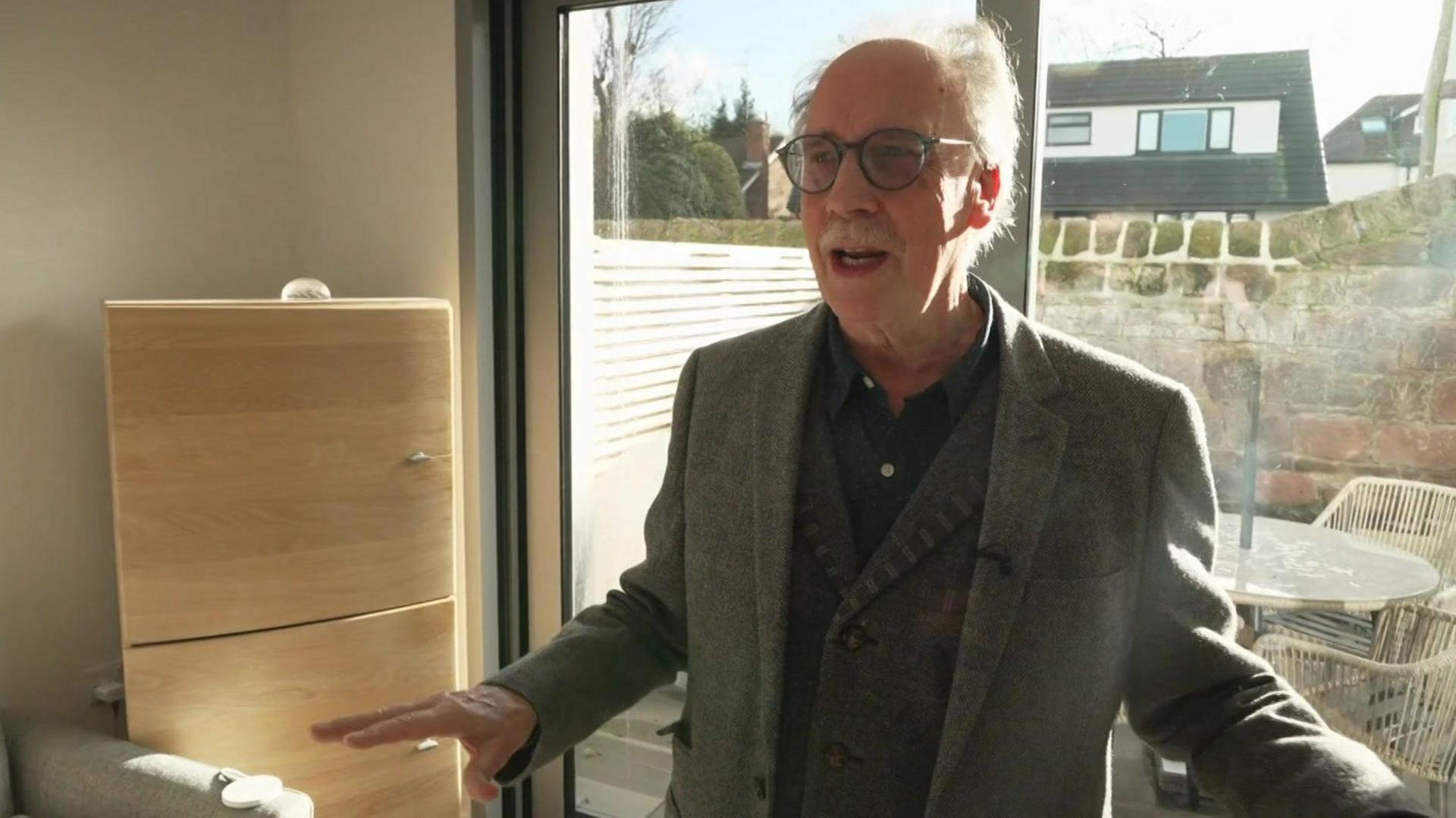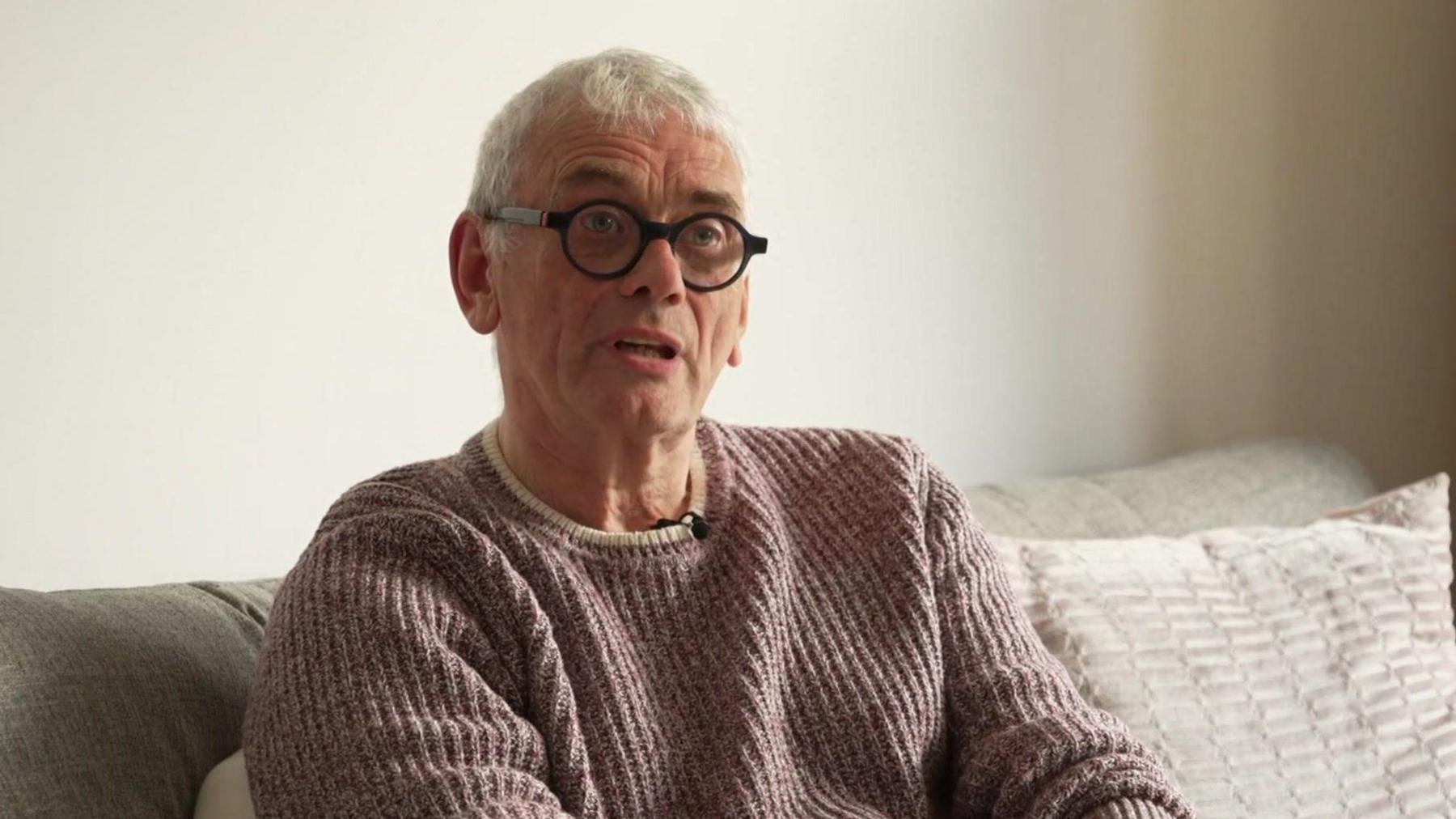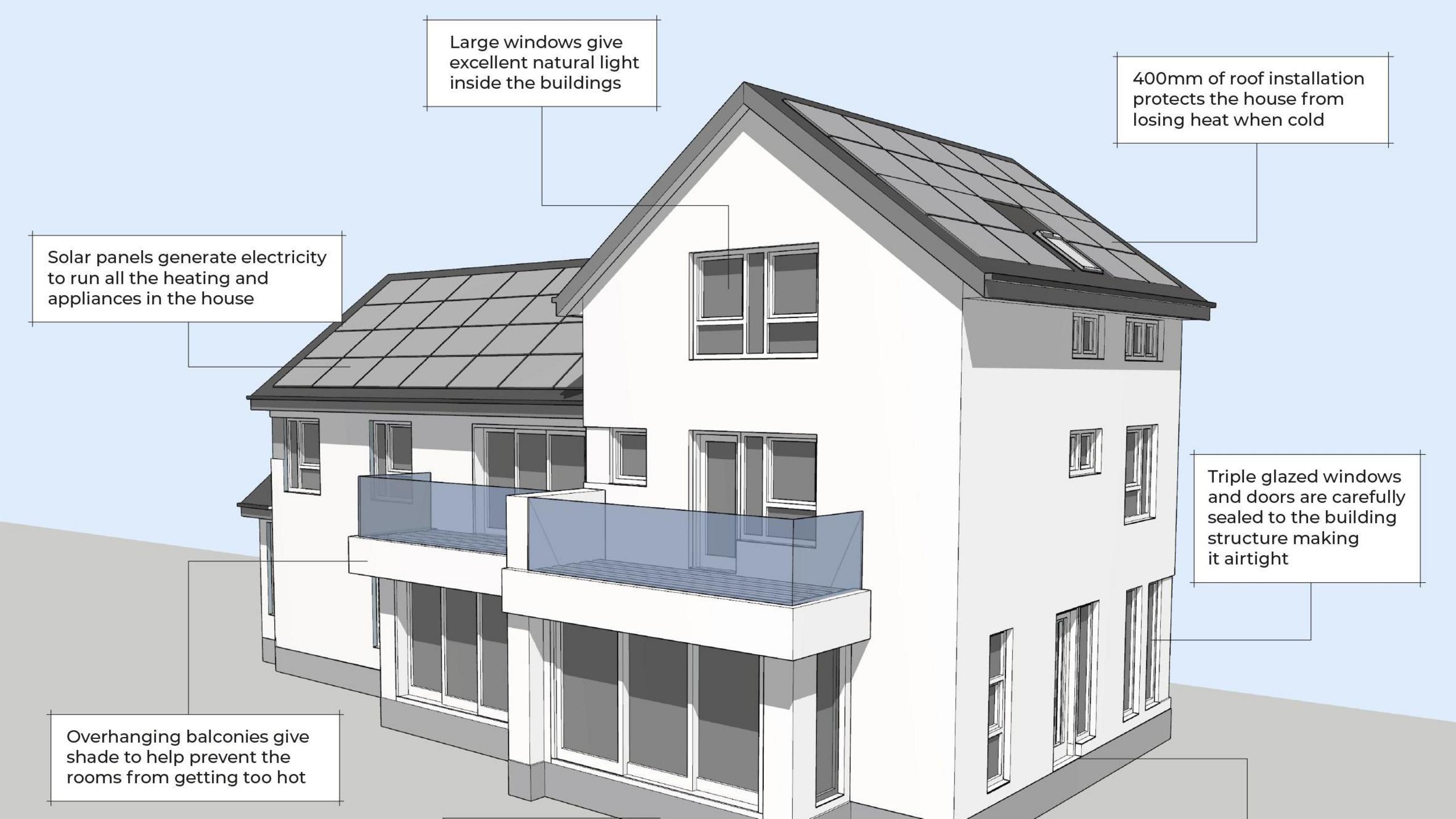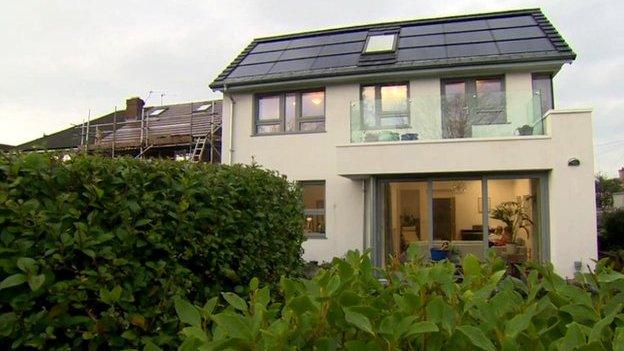'My home runs on the power of a lightbulb'

Colin Usher said his properties can offer almost zero energy prices while not compromising on living standards
- Published
An architect whose home runs on the equivalent power of a lightbulb has designed low energy properties which are sending electricity back to the National Grid.
A four-bedroom house and a pair of two-bedroom apartments in West Kirby, Wirral, designed by Colin Usher have now been completed and are occupied by tenants.
The house, which cost £350,000, and the flats at £250,000 each, received energy performance certificate scores of 105%.
Mr Usher designed and built his own home nearby 12 years ago which costed £15-a-year to run initially.
"Obviously everybody lives in a different way," Mr Usher, who practises as MicroArchiTecture, said.
"But the great thing is that they're all using much less energy than they would otherwise expect to."
One tenant, Robin, now pays about £10-a-month in energy costs in the winter months.

Tenant Robin said the energy bills in his new flat were a "shock, but a nice shock"
He said: "Last winter, we were living in a conventionally heated house and of course the heating charges went through the roof.
"When we got our first electricity bill here it was quite a shock, but a very nice shock."
Heat is retained in the homes by airtight construction, triple glazing and 200mm of insulation in the floors and wall and 400mm of roof insulation.
A ventilation and heat recovery system pumps moisture out of kitchens and bathrooms and passes it through a heat exchanger to warm cooler incoming air.
Batteries allow electricity to be stored for future use with about 75% sold back to the National Grid on sunnier days.

Some of the features of the properties designed by Colin Usher
Mr Usher was asked if homes like this could be constructed with conventional builders rather than specialists in insulation and eco-technology.
He said: "I think, increasingly, it will be.
"There's some really good schemes that are actually beginning to happen, even now, being sponsored by energy companies and things like that."
Mr Usher created eco-friendly homes at Liverpool-based John McCall Architects for 30 years before retiring from the practice in 2018.
At his own home, he now makes a profit of almost £500-a-year by selling excess electricity generated back to the grid at peak times.
"Although the design of the homes is informed by the need to optimise net zero performance, they do not sacrifice anything in order to achieve this," he said.
"The technology is now so advanced that you need next to no human intervention or behavioural changes to have zero fuel bills - you can heat, light, cook and live like normal."
Listen to the best of BBC Radio Manchester on Sounds and follow BBC Manchester on Facebook, external, X, external, and Instagram, external. You can also send story ideas to northwest.newsonline@bbc.co.uk, external
Related topics
- Published3 December 2015
